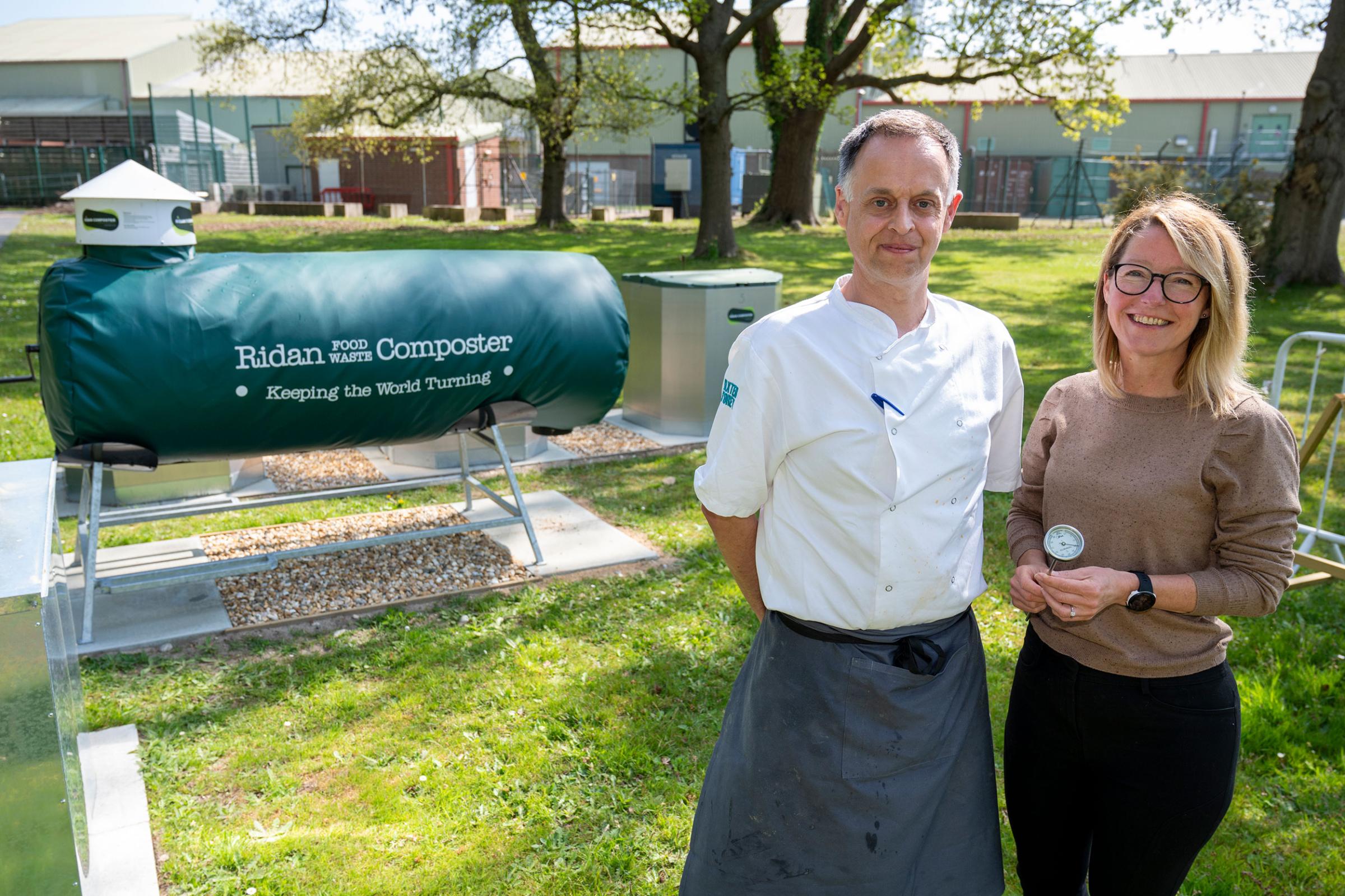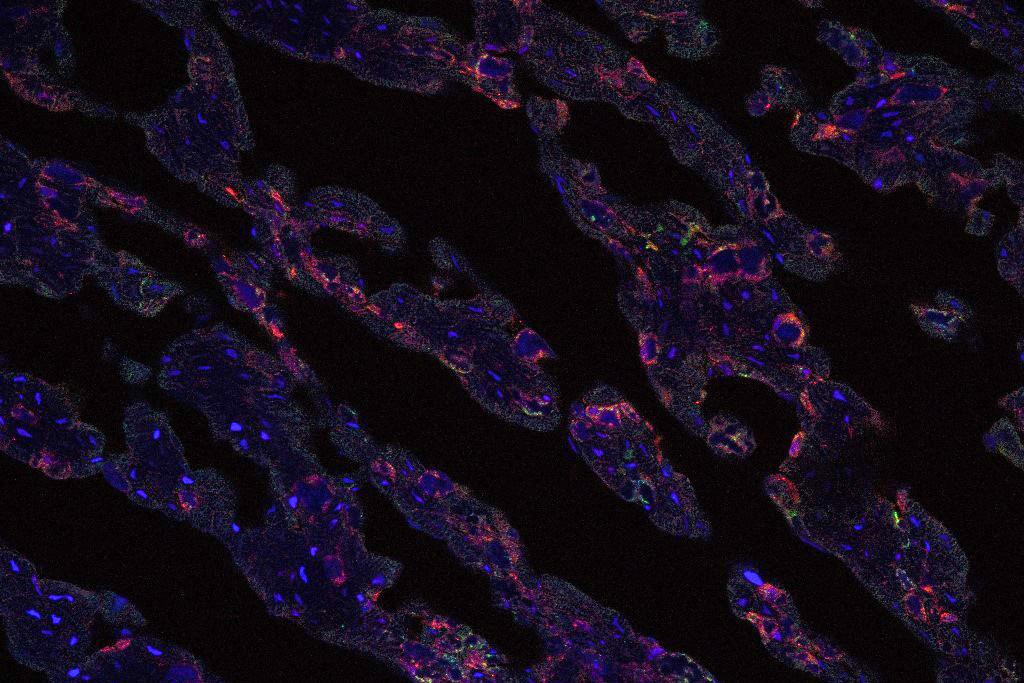A new composter is helping The Pirbright Institute recycle its food waste, fertilise allotments and reduce its carbon footprint.
The hot aerobic composter uses no power and blends wood pellets with canteen waste to produce up to 6.5 tonnes of mulch a year on site. For every 5 kg of combined food and wood pellets added, the Institute receives around 4 kg in compost, depending on the density of the food waste.
“It’s an ideal solution to the problem of dealing with food waste,” said Julie Maryan, Safety and Environment Officer at the Institute.
Legislation requiring all businesses to separate food waste from general waste was introduced in March.
“We faced a dilemma,” said Julie. “We could hire an additional contractor to collect food waste, but it would cost money, and mean more vehicles coming on site, creating more emissions.
“The alternative was to buy a hot composter to manage our own food waste. It’s proving to be a great success. It means we save money on waste collections, remain compliant with the regulations and can use the mulch to improve the quality of our site soil and provide compost for our recently re-established allotments. We also cut down on transport emissions and reduce landfill.”
The support of Pirbright’s catering provider BaxterStorey is crucial to the project. With backing from Chef Manager, Jennifer Edwards, and her team, the Institute is now mulching around 80 kg of food waste each week.
“We are delighted to help out in this win-win situation,” said Jennifer, whose team supports a dynamic, culturally diverse, and vibrant community of around 350 staff on the Pirbright site.
“If the Institute combines our weekly food waste with the required amount of wood pellets, it will generate just under 130 kg in compost, which is great for the environment and the site.”
The composters, made by North Devon-based Ridan, have a 20-year lifespan and are used by a range of organisations across the UK including the National Trust, ITV Studios and HM Intellectual Property Office.

